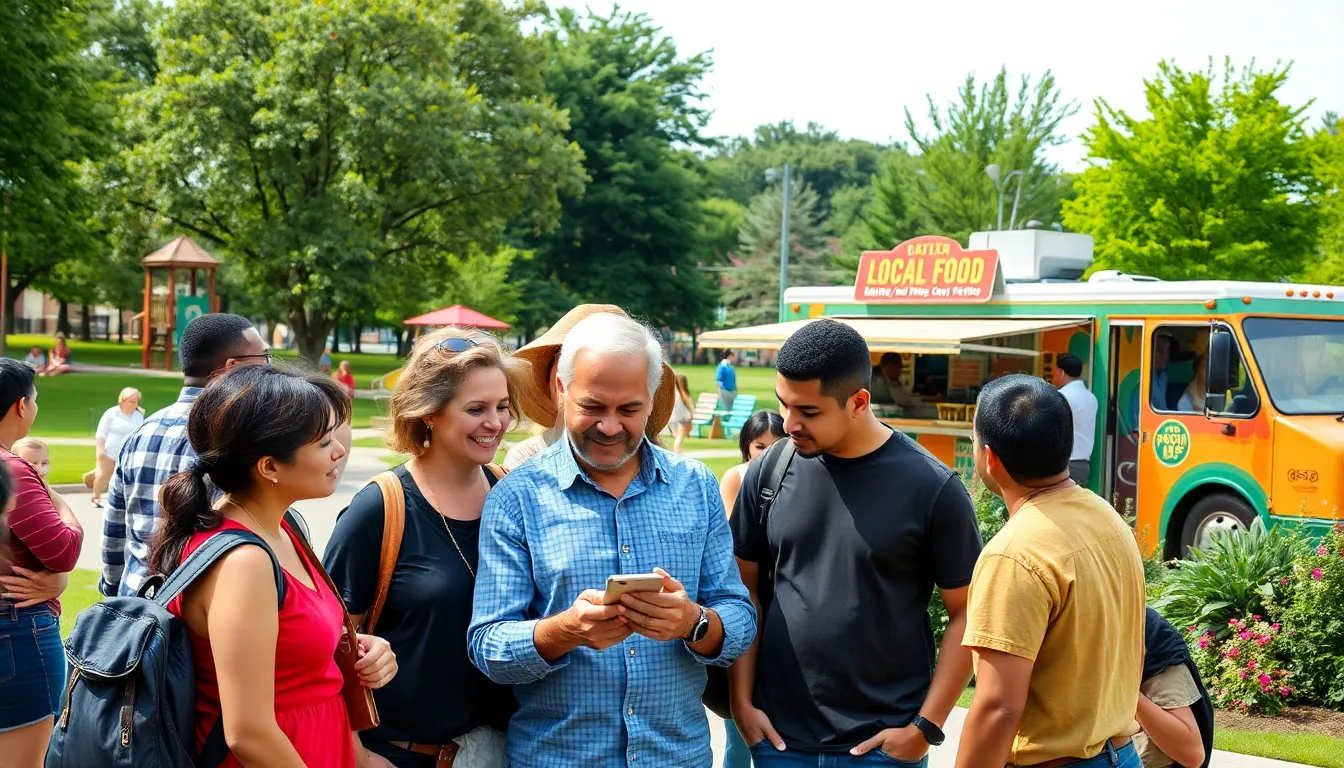In today’s digital age, local community apps are transforming the way neighborhoods connect and thrive. These platforms empower residents to share information, organize events, and support local businesses, fostering a sense of belonging that transcends traditional social interactions. As communities grow increasingly diverse and dynamic, the need for effective communication tools becomes essential.
Local community apps bridge the gap between residents and local resources, making it easier to stay informed about what’s happening nearby. From neighborhood watch initiatives to local farmer’s markets, these apps help create a vibrant community atmosphere. By leveraging technology, they not only enhance engagement but also encourage collaboration among residents, ultimately leading to stronger, more resilient neighborhoods.
Table of Contents
ToggleOverview of Local Community Apps
Local community apps provide platforms for residents to connect, share, and engage with their neighborhoods. These apps serve multiple purposes, including event organization, resource sharing, and supporting local businesses.
Key Features of Local Community Apps
- Communication Tools: Users can interact via messaging, forums, or community boards.
- Event Management: Residents can create, promote, and RSVP to events, fostering participation.
- Local Business Support: Apps feature directories for local businesses, encouraging community purchases.
- Resource Sharing: Users can exchange items, services, or information within the community.
Benefits of Using Local Community Apps
- Enhanced Connectivity: These apps create instant communication channels among neighbors.
- Increased Engagement: Features promote active participation in community events and initiatives.
- Strengthened Local Identity: Users develop a sense of belonging, contributing to a unified community spirit.
- Access to Resources: Local information about services, events, and businesses is readily available.
Popular Local Community Apps
- Nextdoor: Connects neighbors to share local news, events, and recommendations.
- Meetup: Facilitates group gatherings based on shared interests, promoting social interactions.
- Facebook Groups: Offers a platform for local communities to discuss issues and organize events.
Local community apps significantly impact neighborhoods, enhancing connections and engagement among residents. Their features and benefits streamline communication and support, fostering vibrant local networks.
Key Features of Local Community Apps

Local community apps offer essential features that empower residents to interact and build connections within their neighborhoods. These functionalities enhance engagement and support community initiatives effectively.
User Interaction
User interaction tools foster communication among residents. Messaging features allow instant conversations, enabling users to connect directly. Forums and discussion boards create spaces for dialogue about local issues, events, and interests. Polls and surveys gather feedback, ensuring community voices are heard and considered in decision-making processes.
Event Planning
Event planning capabilities streamline the organization of community gatherings. Integrated calendars help users discover local events, including meetings, social functions, and volunteer opportunities. RSVP options allow residents to participate actively, while reminders ensure no one misses crucial gatherings. Collaboration tools enable residents to co-host and manage events easily, strengthening community ties.
Resource Sharing
Resource sharing functionalities facilitate access to local services and support. Directories list businesses, nonprofits, and community resources, enabling users to find essential services quickly. Users can share items like tools, books, or meals through platforms, promoting sustainability and collaboration. Additionally, community forums offer support for various needs, from childcare to home repairs, enhancing overall neighborhood resilience.
Popular Local Community Apps
Several local community apps significantly enhance neighborhood engagement and connectivity. Here are three popular options, each with unique features and benefits.
App 1: Nextdoor – Features and Benefits
Nextdoor enables neighbors to connect and share information easily. Key features include neighborhood-specific forums, event calendars, and business directories. Residents can post local updates, request recommendations, and offer services. Benefits of using Nextdoor include increased awareness of community events, enhanced local support for businesses, and a stronger sense of belonging among users.
App 2: Meetup – Features and Benefits
Meetup facilitates the organization of community-focused events and activities. Users can create groups based on interests, schedule gatherings, and RSVP for events. Features include customizable event pages, messaging options, and reminders for upcoming activities. Benefits of Meetup include the ability to discover new hobbies, meet like-minded individuals, and build social connections within local communities.
App 3: Facebook Groups – Features and Benefits
Facebook Groups provide a platform for residents to engage around shared interests or neighborhood issues. Group features include discussion threads, event planning tools, and file sharing. Users can participate in conversations, organize community projects, and share local resources. Benefits include access to a larger audience, increased visibility for local initiatives, and the ability to connect with diverse groups within the community.
The Impact of Local Community Apps
Local community apps significantly reshape interactions among residents and create vibrant neighborhoods. These platforms foster connections and provide essential resources that strengthen community ties.
Connecting Residents
Connecting residents through local community apps occurs via various communication tools. Messaging features enable instant conversations among neighbors, while forums allow for broader discussions about local issues or events. Polls and surveys gather feedback, ensuring residents feel heard in community decision-making. These tools foster engagement that leads to organizing neighborhood events, enhancing participation in local activities. Additionally, group discussions create a sense of belonging and community identity, encouraging deeper relationships among residents.
Enhancing Local Businesses
Enhancing local businesses remains a core benefit of local community apps. Business directories provide residents with easy access to nearby shops and services, promoting local commerce. These platforms enable businesses to share updates, special offers, and events directly with the community. User reviews and recommendations encourage trust and visibility, driving foot traffic to these establishments. Furthermore, collaborations between residents and businesses, such as sponsorships for community events, further support economic growth within neighborhoods. By strengthening local economies, these apps contribute to a more resilient and self-sufficient community.
Local community apps are revolutionizing the way residents connect and engage with their neighborhoods. By providing essential tools for communication and collaboration, these platforms foster a sense of belonging and community spirit. Users can easily share information, organize events, and support local businesses, creating vibrant networks that enhance local identity.
As neighborhoods continue to evolve, the role of these apps becomes increasingly vital. They not only bridge gaps between residents and resources but also promote sustainability and resilience within communities. Embracing local community apps can lead to stronger relationships and a more engaged populace, ultimately shaping the future of neighborhood interactions.


